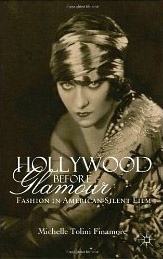An enthusiastic review of the Hollywood silent film, The Tiger Woman (1917) starring the first (but not the last) female sex symbol of the silent era, Theda Bara (born Theodosia Burr Goodman; 1885-1955). This very brief review will give you a sense of how uneasily many men must have sat in their chairs when she was pictured on screen.
From Amazon:

Click here to read articles about Marilyn Monroe. Disgusted with being remembered for only playing the role of vampires, Theda Bara wrote this piece where she listed several sound reasons as to why she would never play such a roll again: "To me, there is nothing so quaintly naive as this inability of the moving picture public to disassociate the screen personality of a star from his or her own personality. I wonder what they think a Mack Sennett bathing girl must be like around the house". "A Fool There Was" was originally produced in 1915 starring Theda Bara in the vampire roll; but as the view of women changed in society, to say nothing of popular culture, the producers in the early Hollywood dream-factory decided to re-stage the production with a racier woman in the lead -a "flapper-vampire", if you will. The reviewer was sympathetic as to the need for a new adaptation but pointed out that the actress who was re-cast in the Theda Bara roll, Estelle Taylor (1894 — 1958), left the audiences wanting. It was also pointed out that "the censorship menace hangs heavy over 'A Fool There Was'.
In 1919 Theda Bara wrote an article for VANITY FAIR MAGAZINE in which she swore off ever playing a vampire again; click here to read it.
In 1922 former Vanity Fair editor (1919 - 1920) and future Algonquin wit, Robert E. Sherwood (1896 - 1955), taking his job seriously as the film critic for LIFE MAGAZINE, journeyed West to visit the growing movie kingdom of Hollywood. The doors magically opened up for him and he was able to rub elbows with many of the crowned heads of the realm. He filed these eight paragraphs recounting his experiences and observations; you might be amused to read his thoughts concerning the unfinished Hollywood sign.
The article is adorned with cartoons by John Held Jr.. In the world of American 1920s satirical art, he was the gold standard. The silent film actor J. Warren Kerrigan (1882 - 1947; played in such films as Captain Blood, Samson and Delilah and The Covered Wagon) was singled out for ridicule following a poorly conceived remark that all artists should be exempted from military service. The editors of Photoplay Magazine counter-attacked with a short list of the creative souls who have served regardless of their talents to entertain or provoke thought.
Apparently getting skewered in the press had no effect on him; he still wouldn't register for the draft for another thirteen months. An in-depth interview with the great silent film comedian Harold Lloyd (1893 – 1971) accompanied by a seldom seen picture of the man WITHOUT his glasses (he didn't really need them). One blogger read the attached article and wrote the following: "I've never read this before - it's great. It's always good to hear Harold's own thoughts on his films; I enjoyed his description of the stunt he did in on top of the locomotive at the mouth of an approaching tunnel in the film "Now or Never". It's a spectacularly funny gag, but we sometimes forget the effort that went into these scenes; Harold was one comedy star who was prepared to suffer for his art!"
|